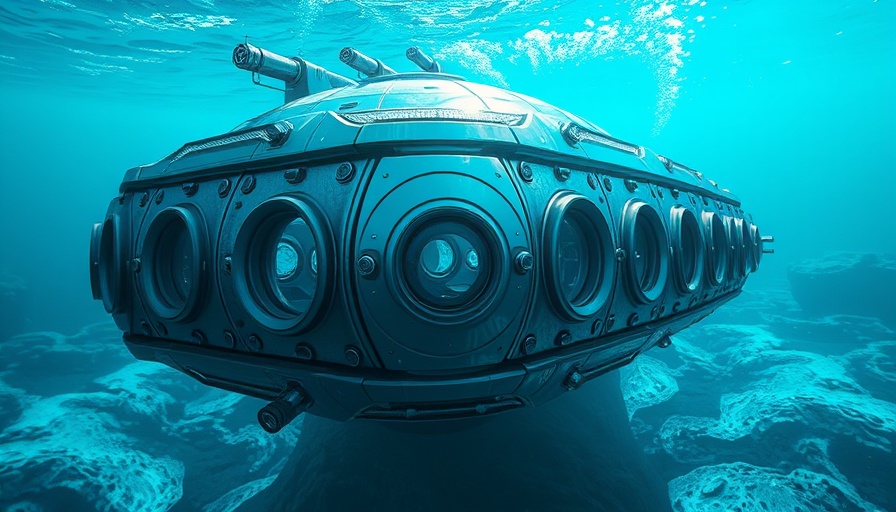
The Future of Underwater Living: A Revolutionary Initiative
Imagine a world where humans can inhabit vibrant underwater habitats, exploring and studying the depths of our oceans as comfortably as we do on land. DEEP, a pioneering company, is on a quest to make this vision a reality by 2030. Their ambitious goal centers around creating sustainable habitats that allow for prolonged underwater living, akin to living on the International Space Station, but in the depths of the ocean.
In Futuristic Ocean Habitat Aims to House Humans by 2030, the discussion dives into DEEP's innovative approach to underwater living, exploring key insights that sparked deeper analysis on our end.
Understanding DEEP’s Innovations
At the core of DEEP’s mission is the habitat named Sentinel, designed to support extensive scientific research and marine exploration. Located in a controlled environment—a submerged limestone quarry in the UK—DEEP is currently testing technology that could change the way we understand the ocean. By utilizing advanced 3D printing techniques and modular designs, DEEP assures adaptability and efficiency in constructing the habitats.
Bridging Historical Innovations with Future Potential
Human endeavors to explore underwater environments date back to the groundbreaking work of researchers like Jacques Cousteau in the 1960s. Cousteau’s Continental Shelf Station was a scientific landmark, enabling divers to live and work beneath the waves. However, innovations since then have been limited, making DEEP’s advancements a crucial step forward. The habitats’ flexibility in design and construction methods highlights a significant evolution in underwater living, where habitats can transform easily based on research needs.
Unlocking Oceanic Mysteries
The ocean is an unexplored frontier, covering nearly 70% of our planet and remaining largely unknown. DEEP aims to change this narrative by encouraging a new generation to explore marine sciences and engineering. By creating accessible underwater habitats, they're fostering interest in oceanography and providing practical tools for marine restoration and research.
As DEEP ventures forward, the potential they unlock could also facilitate advancements in climate science and biodiversity preservation, making it a valuable initiative for not just scientists, but also entrepreneurs looking to invest in impactful solutions.
In a world increasingly focused on technological connections and advancements, the allure of underwater living captures the imagination. Would you consider living underwater? We invite readers to reflect on what the democratization of ocean access could mean for our understanding of the deep seas.
 Add Row
Add Row  Add
Add 




Write A Comment